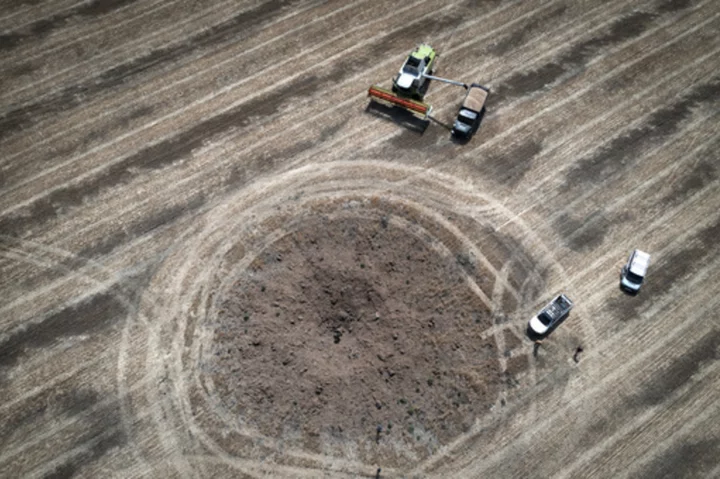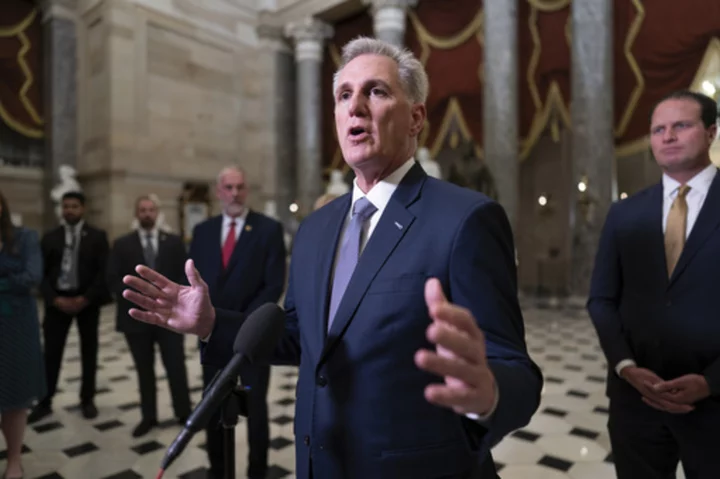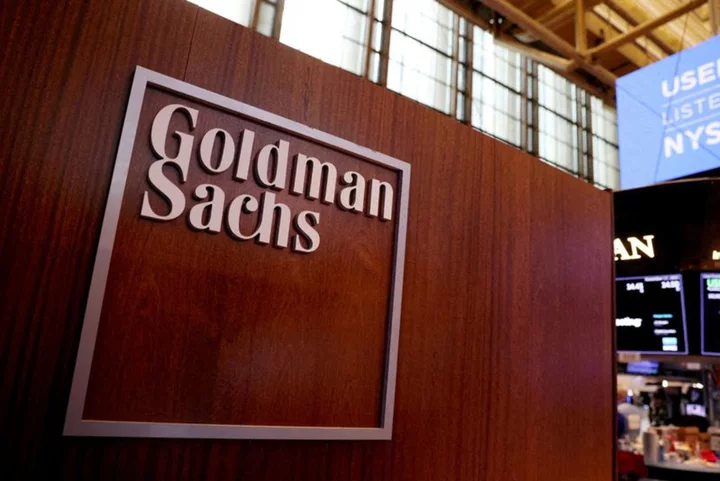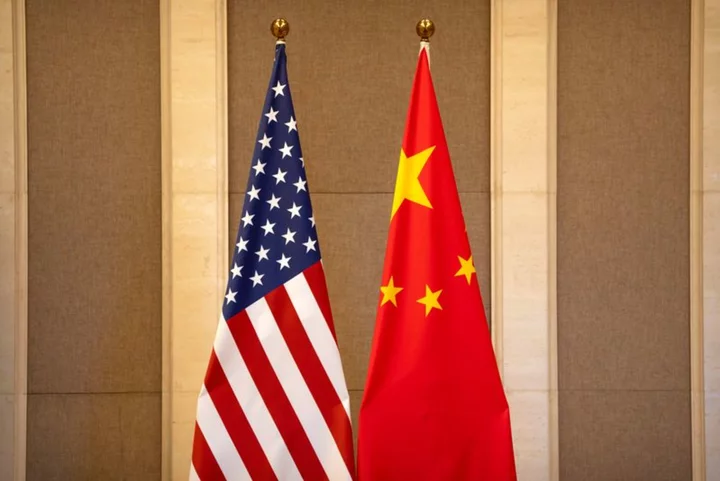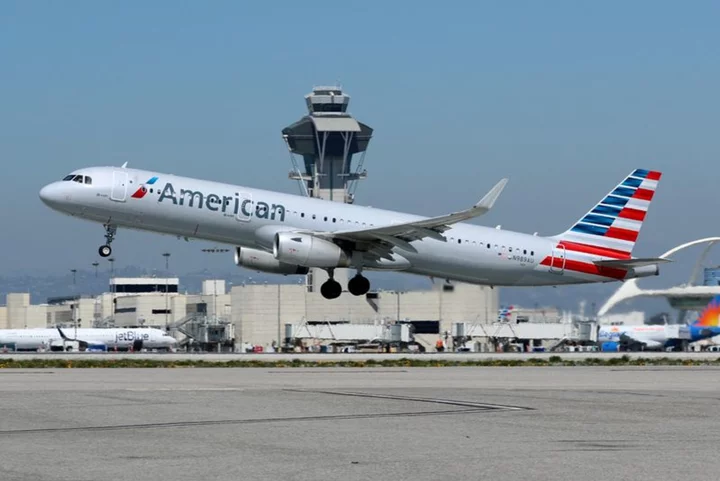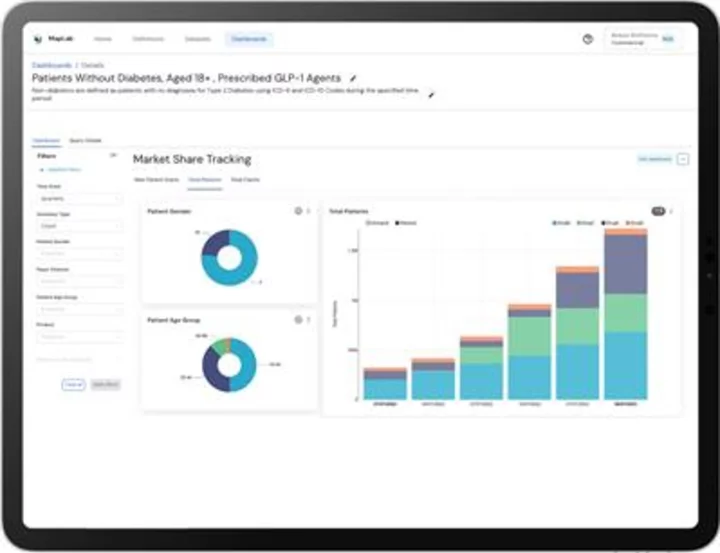LONDON (AP) — Agreements that the United Nations and Turkey brokered with Ukraine and Russia to allow food and fertilizer to get from the warring nations to parts of the world where millions are going hungry have eased concerns over global food security. But they face increasing risks.
Moscow has ramped up its rhetoric, saying it may not extend the deal that expires Monday unless its demands are met, including ensuring its own agricultural shipments don't face hurdles.
The Black Sea Grain Initiative has allowed 32.8 million metric tons (36.2 million tons) of food to be exported from Ukraine since last August, more than half to developing countries, including those getting relief from the World Food Program.
If the deal isn’t renewed, “you will have a new spike for sure” in food prices, said Maximo Torero, U.N. Food and Agriculture Organization chief economist. “The duration of that spike will depend a lot on how markets will respond."
The good news is some analysts don't foresee a lasting rise in the cost of global food commodities like wheat because there’s enough grain in the world to go around. But many countries are already struggling with high local food prices, which are helping fuel hunger.
Here's a look at the crucial accord and what it means for the world:
WHAT IS THE GRAIN DEAL?Ukraine and Russia signed separate agreements in August 2022 that reopened three of Ukraine's Black Sea ports, which were blocked for months following Moscow's invasion. They also facilitated the movement of Russian produce amid Western sanctions.
Both countries are major global suppliers of wheat, barley, sunflower oil and other affordable food products that Africa, the Middle East and parts of Asia rely on. Ukraine is also a huge exporter of corn, and Russia of fertilizer — other critical parts of the food chain.
Interrupted shipments from Ukraine, dubbed the “breadbasket of the world,” exacerbated a global food crisis and sent prices for grain soaring worldwide.
“One major agricultural producer is waging war on another major agricultural producer, which is affecting the price of food and fertilizers for millions of people around the world,” said Caitlin Welsh, director of the Global Food and Water Security Program at the Center for Strategic and International Studies.
The deal provides assurances that ships won't be attacked entering and leaving Ukrainian ports. Vessels are checked by Russian, Ukrainian, U.N. and Turkish officials to ensure they carry only food and not weapons that could help either side.
Meant to be extended every four months, the deal was hailed as a beacon of hope amid war and has been renewed three times — the last two for only two months as Russia insisted its exports were being held up.
WHAT HAS IT ACCOMPLISHED?The deal helped bring down global prices of food commodities like wheat that hit record highs after Russia invaded Ukraine.
As the war caused food and energy costs to surge worldwide, millions of people were thrown into poverty and faced greater food insecurity in already vulnerable nations.
Once the grain deal was struck, the World Food Program got back its No. 2 supplier, allowing 725,000 metric tons (800,000 tons) of humanitarian food aid to leave Ukraine and reach countries on the precipice of famine, including Ethiopia, Afghanistan and Yemen.
“It is a pretty unique phenomenon to have two warring parties and two intermediaries agree to establish this sort of corridor to get humanitarian products — which is ostensibly what this is — out to markets that need it most,” said John Stawpert, senior manager of environment and trade for the International Chamber of Shipping, which represents 80% of the world’s commercial fleet.
WHAT THREATENS THE DEAL?Russian President Vladimir Putin said Moscow wouldn’t extend the grain deal unless the West fulfills “the promises given to us.”
“We have repeatedly shown goodwill to extend this deal," Putin told reporters Thursday. "Enough is enough.”
He said he wants an end to sanctions on the Russian Agricultural Bank and to restrictions on shipping and insurance that he insists have hampered agricultural exports.
Some companies have been wary of doing business with Russia because of sanctions, but Western allies have made assurances that food and fertilizer are exempt.
“It’s not uncommon in situations like this for countries to use whatever levers they have to try and get sanctions regimes changed," said Simon Evenett, professor of international trade and economic development at the University of St. Gallen in Switzerland.
U.N. Secretary-General Antonio Guterres sent a letter to Putin this week proposing to ease transactions through the agricultural bank, a spokesperson said.
Russian “claims that its agriculture sector is suffering are countered by the reality" that production and exports are up since before the war, Welsh said.
Russia exported a record 45.5 million metric tons of wheat in the 2022-2023 trade year, with another all-time high of 47.5 million metric tons expected in 2023-2024, according to U.S. Department of Agriculture estimates.
WHO IS AFFECTED?The International Rescue Committee calls the grain deal a “lifeline for the 79 countries and 349 million people on the frontlines of food insecurity."
East Africa, for instance, has seen both severe drought and flooding, destroying crops for 2.2 million people who depend on farming for their livelihoods, said Shashwat Saraf, the group’s regional emergency director for East Africa.
“It is critical that the deal is extended for a longer term to create some predictability and stability,” he said in a statement.
Countries that depend on imported food, from Lebanon to Egypt, would need to find suppliers outside the Black Sea region, which would raise costs because they are further away, analysts say.
That would compound costs for countries that also have seen their currencies weaken and debt levels grow because they pay for food shipments in dollars.
For low-income countries and people, food “will be less affordable” if the grain deal isn't renewed, World Food Program chief economist Arif Husain told reporters.
WHAT ABOUT UKRAINE?Ukraine's economy depends on agriculture, and before the war, 75% of its grain exports went through the Black Sea.
It can send its food by land or river through Europe, so it wouldn’t be cut off from world markets if the grain deal ends, but those routes have a lower capacity than sea shipments and have stirred anger from farmers in neighboring countries.
Nonetheless, the Ukrainian Grain Association wants to send more grain through the Danube River to neighboring Romania's Black Sea ports, saying it's possible to double monthly exports along that route to 4 million metric tons.
Ukraine’s wheat shipments have fallen by more than 40% from its pre-war average, with the USDA expecting 10.5 million metric tons exported in the coming year.
Ukraine has accused Russia of slowing down inspections of ships and preventing new ones from joining the initiative, leading to a drop in its food exports from a high of 4.2 million metric tons in October to 2 million in June.
WHAT ELSE AFFECTS FOOD SUPPLY?Fallout from the pandemic, economic crises, drought and other climate factors affect the ability of people to get enough to eat.
There are 45 countries that need food assistance, the Food and Agriculture Organization said in a July report. High domestic food prices are driving hunger in most of those countries, including Haiti, Ukraine, Venezuela and several in Africa and Asia.
While drought can also be a problem for major grain suppliers, analysts see other countries producing enough grain to counterbalance any losses from Ukraine.
Besides Russia's huge exports, Europe and Argentina are increasing wheat shipments, while Brazil saw a banner year for corn.
“These markets adapt and producers adapt — and boy, the wheat and corn markets have adapted very, very quickly,” said Peter Meyer, head of grain analytics at S&P Global Commodity Insights.
___
AP reporter Edith M. Lederer at the United Nations contributed.
___
See AP’s complete coverage of the war in Ukraine at https://apnews.com/hub/russia-ukraine and the food crisis at https://apnews.com/hub/food-crisis.

